On this page
What is transition?
As you grow, develop and mature into a young adult you will require the support of a team that look after adults on HPN. Rather than having appointments at the children’s hospital, you will attend the adult HPN clinic. If you require hospital admission after you have transitioned, in most cases, you would be admitted to an adult ward. We will discuss this with you and your family/carers during transition appointments or prior to admission.
Transitioning can seem like a daunting time when you have a long-established relationship with your current children’s team. We are here to support you, and those close to you, throughout the transition period. We aim to build confidence and encourage your independence as a young adult managing intestinal failure.
To ease the transition process, you will meet some members of the adult team during a clinic appointment before transferring to the adult service. If you wish, a member of your children’s team can attend your first appointment in the adult service.
When will the transition start?
The transition process will start when you and your nutrition team feel you are ready. Transition usually occurs between the ages of 15 to 17 years old. Discussions about transition should begin much earlier than this to ensure it is a gradual process.
Meet the team
Newcastle is a designated regional centre for HPN in the Northeast of England. We currently care for around 150 patients on HPN.
Our multi-disciplinary team includes Consultant Gastroenterologists, Consultant Surgeons, Specialist Nurses, and Specialist Dietitians who work together to ensure you receive the best possible care.
Consultant gastroenterologists
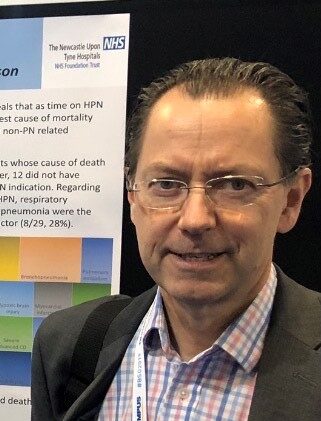
Dr Nick Thompson, Consultant gastroenterologist
The idea of Intestinal Failure is not well known and the service in Newcastle has grown gradually over the past 20 years to one of the largest in the country. I really enjoy working with other members of the team to reassure patients and their families about their condition and to see them get better and gain confidence. When I am not at work, I might be playing real tennis, making chutney or marmalade or walking a very lovely greyhound.

Dr Christopher Mountford, Consultant gastroenterologist
I’m a Consultant Gastroenterologist in Newcastle upon Tyne, where I’ve been in post since 2014. I have a particular interest in nutrition support and work within the adult regional home parenteral nutrition service. I work very closely alongside my colleague Nick Thompson, as well as surgical, dietetic and nursing colleagues to provide a specialist service for the North East and Cumbria. I am also very involved with the charity British Association for Parenteral and Enteral Nutrition, where I’m currently a trustee and executive board member. I am passionate about the important role of nutrition in patient care. In my spare time, I enjoy cycling and I’m dad to three children.
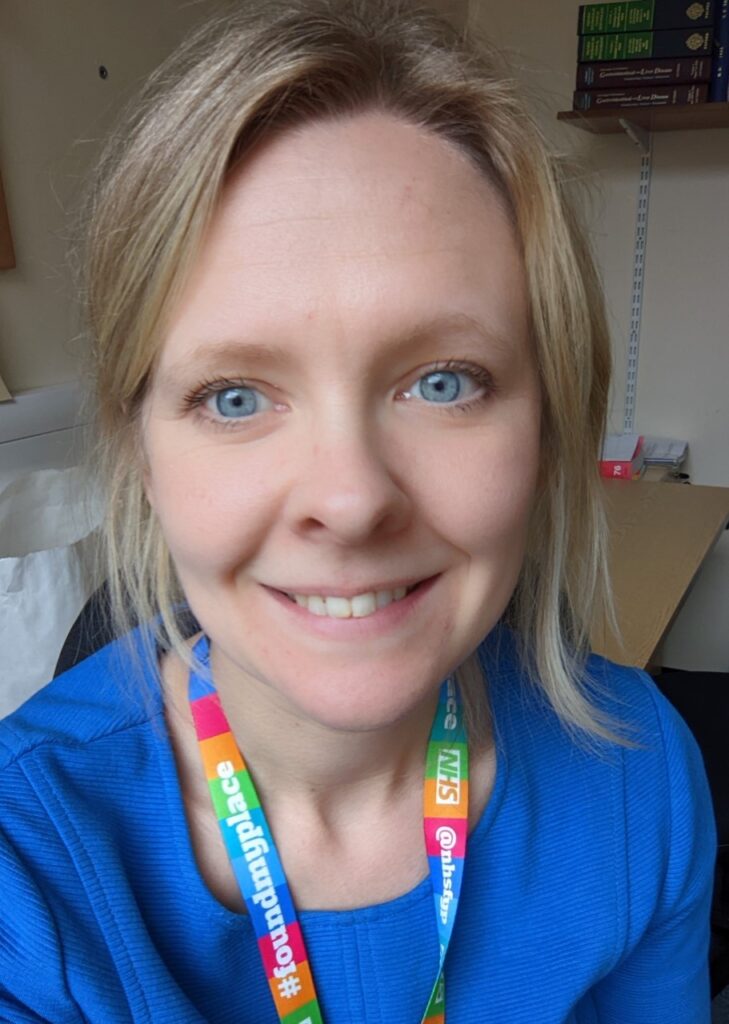
Dr Suzi Batchelor, Consultant gastroenterologist
I am a new member to the Intestinal Failure and Home Parenteral Nutrition team here in Newcastle. I enjoy working within a challenging, interesting and evolving subspecialty with a wonderful team of colleagues to deliver patient centred care both in and out of hospital.
When not at work I enjoy spin classes, baking and enjoying time on the beach with my family.
Consultant surgeons
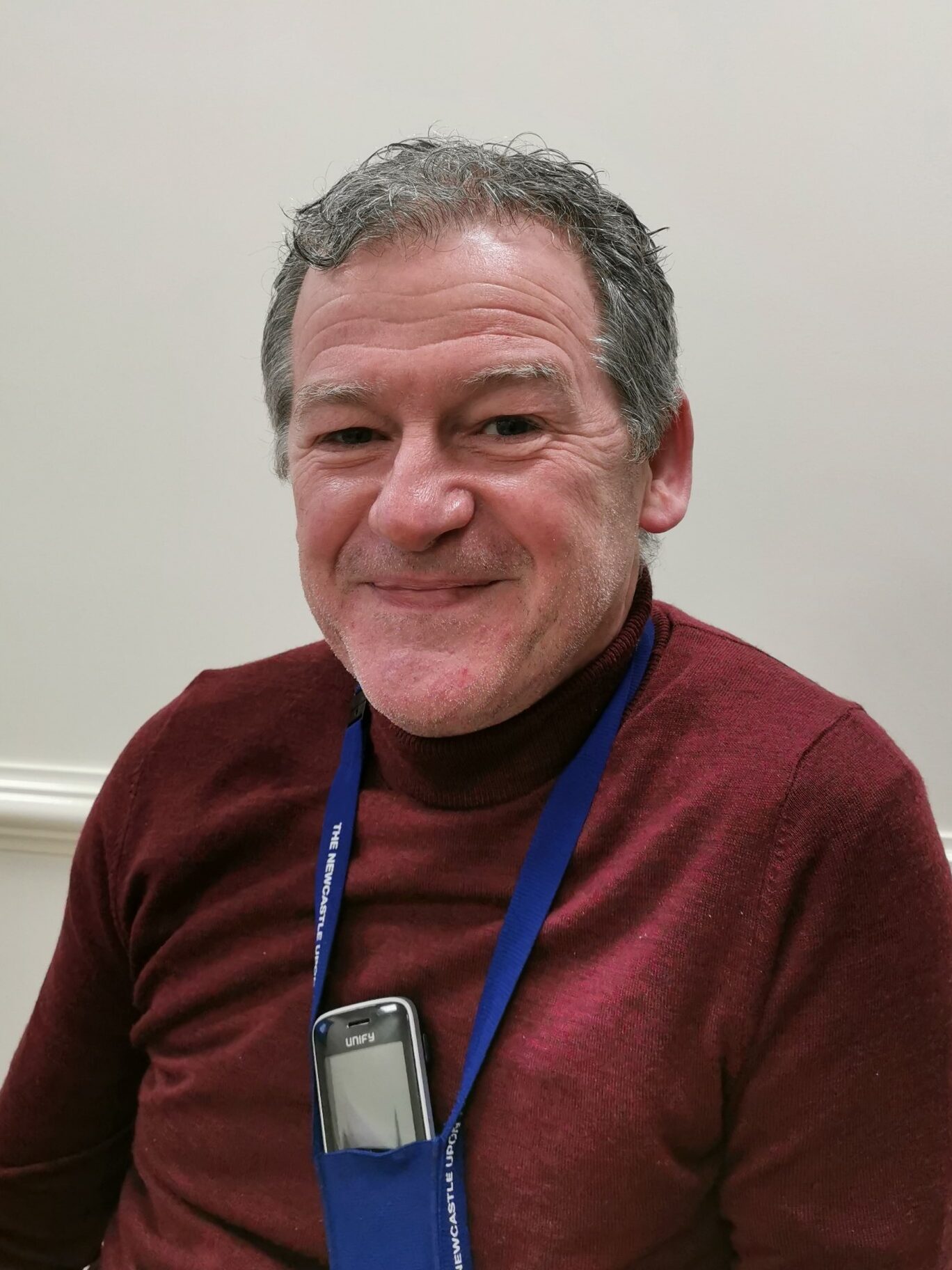
Mr Fintan Bergin, Consultant surgeon
The Adult Intestinal Failure (IF) Service has developed over more than a decade. My initial involvement stemmed from experience and wide practice in Inflammatory Bowel Disease.
The IF service is exciting and new. We seek to provide the best possible surgical care for patients including rehabilitation and reconstruction where possible. We have a dedicated and expanding team.
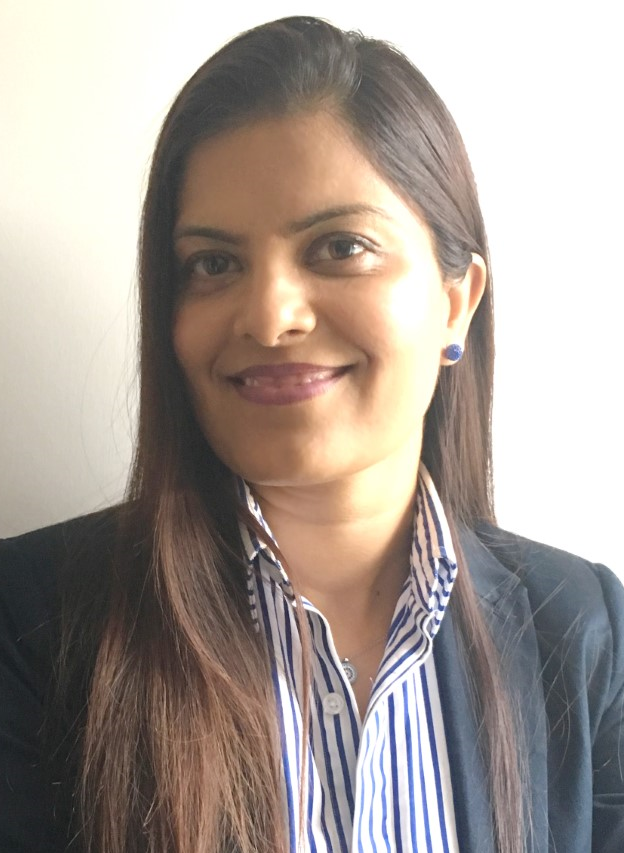
Miss Neena Randhawa, Consultant colorectal surgeon
The challenges and complexity of intestinal failure management and surgical needs is what attracted me to specialise in this field. I am a new member to the Newcastle Intestinal Failure Team, but I have really enjoyed my time here so far.
When I am not at work, I like baking. Decorating cakes is very therapeutic!
Specialist nurses
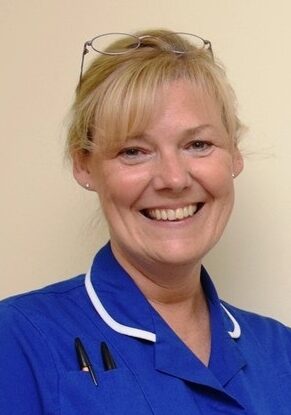
Hayley Leyland, Lead specialist HPN nurse
I have been the Lead Nurse Specialist for Adult HPN for 12 years, a role which I thoroughly enjoy. I am very lucky to work alongside colleagues who are passionate about improving our service and the quality of life for our patients on HPN.
Outside of work I enjoy playing or watching tennis, watching my son play rugby and looking after our rescue cat Lola.
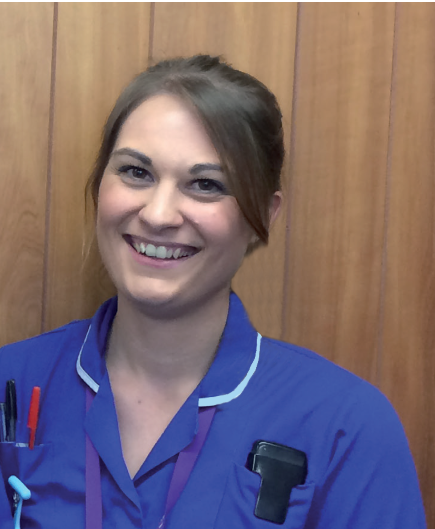
Jessica McDonald, Specialist HPN nurse
As a nurse working with home parenteral nutrition, I enjoy being able to work closely with patients and their families, both in the hospital and their homes, for as long as they need our services. It is amazing to watch people grow and follow their achievements.
When I am not at work, I am in the gym or reading!
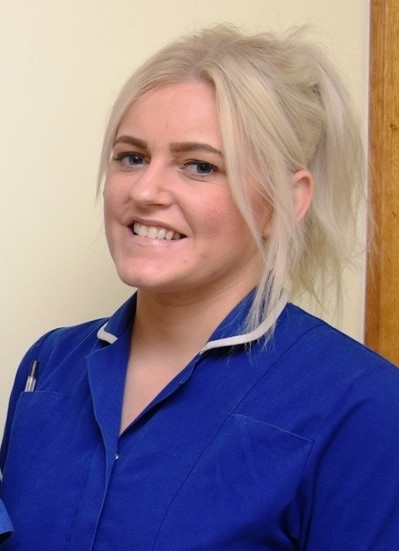
Stacey Vass, Specialist HPN nurse
I have been a qualified nurse for 12 years and I am very proud to have been part of the nutrition team and home PN team for the last 5 years. My favourite part of the job is getting to know, working closely with my patients and their family and/or friends, and helping them with their journey home.
Outside of work, I love going on long walks with my little doggy, going to watch live music and visiting my friends and family in Scotland.
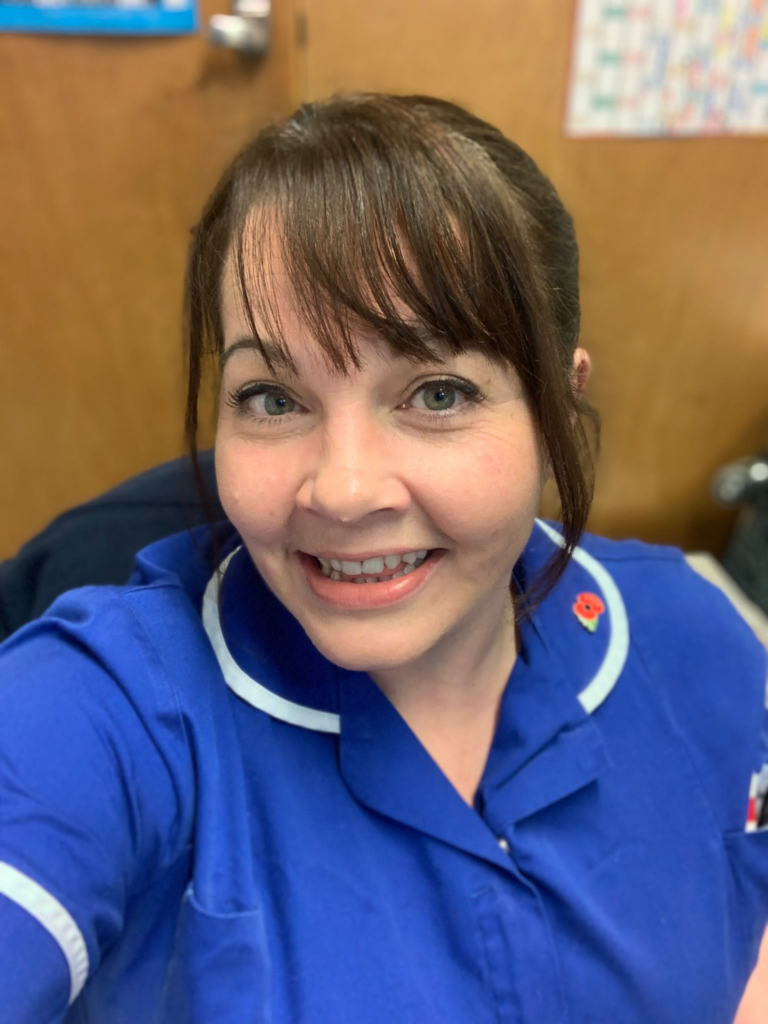
Viki Gale, Specialist HPN nurse
I have worked on the ward looking after patients on TPN for a very long time and I’m excited and proud to be working as part of the Nutrition team. I really enjoy working closely with patients and their families to assist them to get on TPN and supporting them at home.
Outside of work I like to be in my garden with my dog, cat, poultry, and bees. I enjoy the countryside and long walks. I also love cooking for my family and friends.
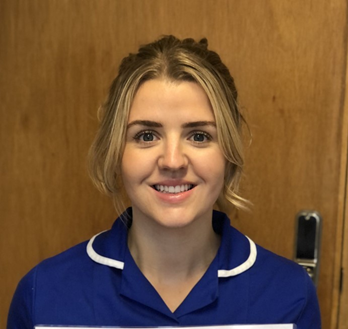
Sally Watts, intestinal failure nurse specialist
As an Intestinal Failure Specialist Nurse, I work across the surgical wards to provide the best possible care for patients with intestinal failure. I enjoy being able support patients and their families from the point of referral to our service and throughout their journey until they have reconstructive surgery. It is a privilege to share this journey with our patients and see how our service and support can improve their lives.
In my spare time, I enjoy going to gym, watching live music and spending time with my family and friends.
Dietitians
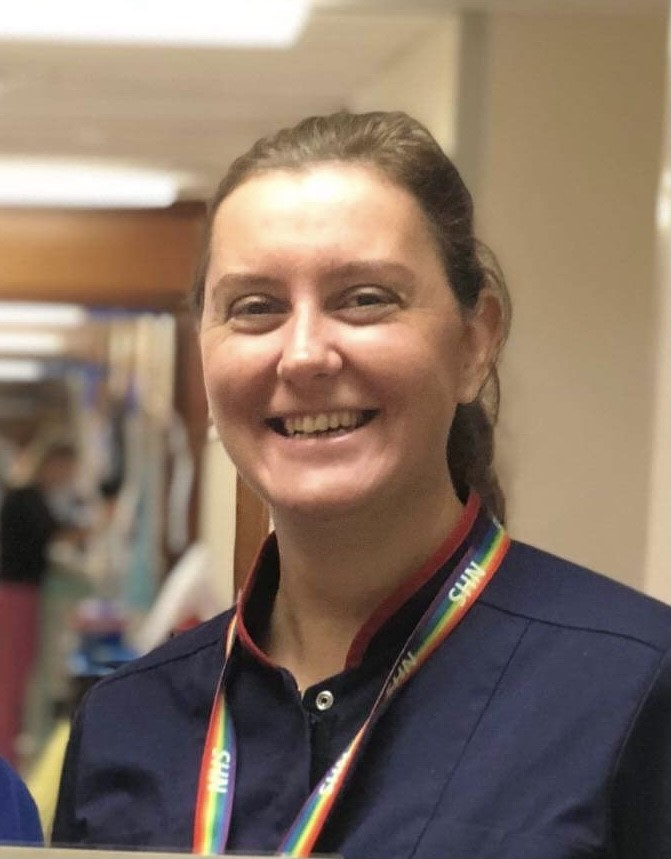
Lisa Gemmell, lead dietitian
I have cared for people on home parenteral nutrition since 2006 and throughout that time, it has been a pleasure to see so many young people transition to the adult service. It is the most enjoyable part of my job as a dietitian to make sure young people can reach their potential and have some independence as much as possible.
In my spare time, I enjoy sea swimming and paddle boarding, spending time with my family and friends.
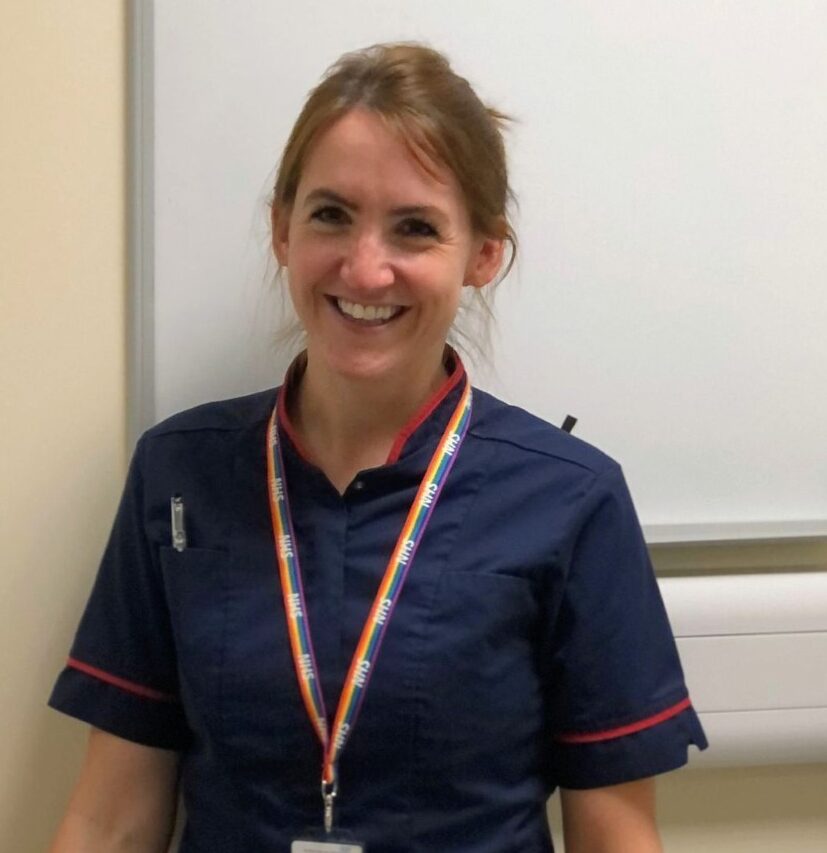
Collette Kirk, senior dietitian and NIHR training fellow
My favourite part of being a dietitian within home parenteral nutrition is creating patient specific nutritional plans that allows that person to feel stronger, fitter and more energised. From the point of referral, the transformations we see in patients are incredible.
Outside of work, I’m often entertaining my two-year-old, running or travelling!
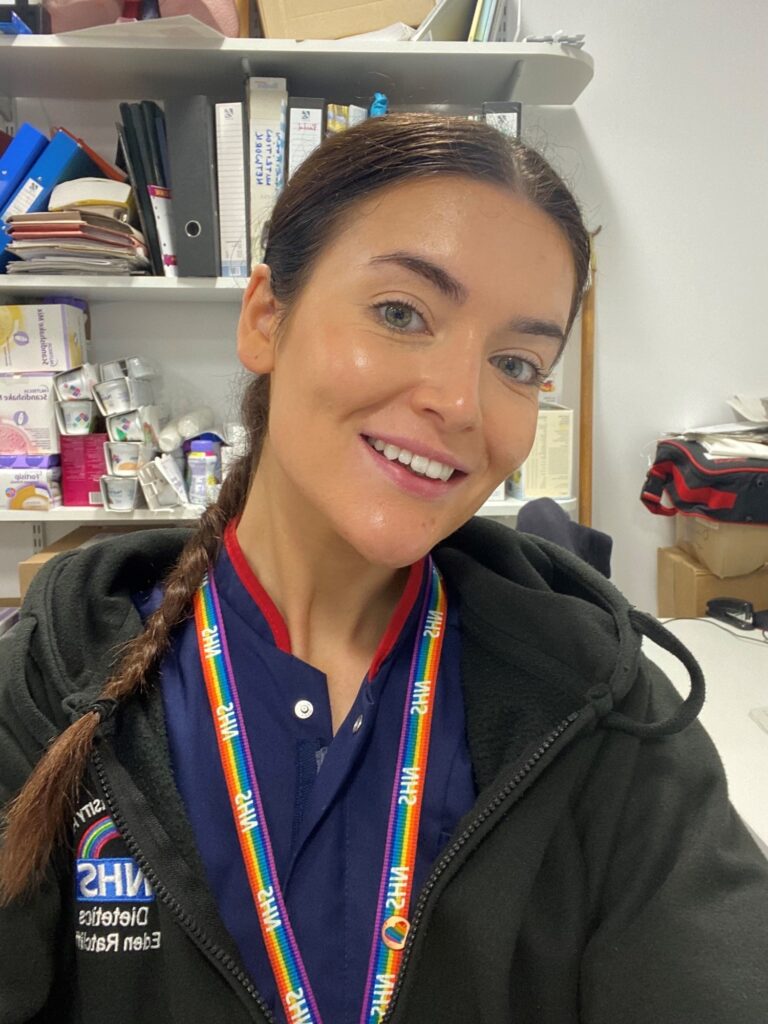
Eden Ratcliffe, Senior dietitian
I am a new dietitian in the intestinal failure and home parenteral nutrition team. I love being able to support patients to ensure that their parenteral nutrition regimen allows them to be as independent as possible, and they have energy to do the things that they enjoy the most.
When I’m not in work, I’m trying to keep up my daily Sudoku streak or running!
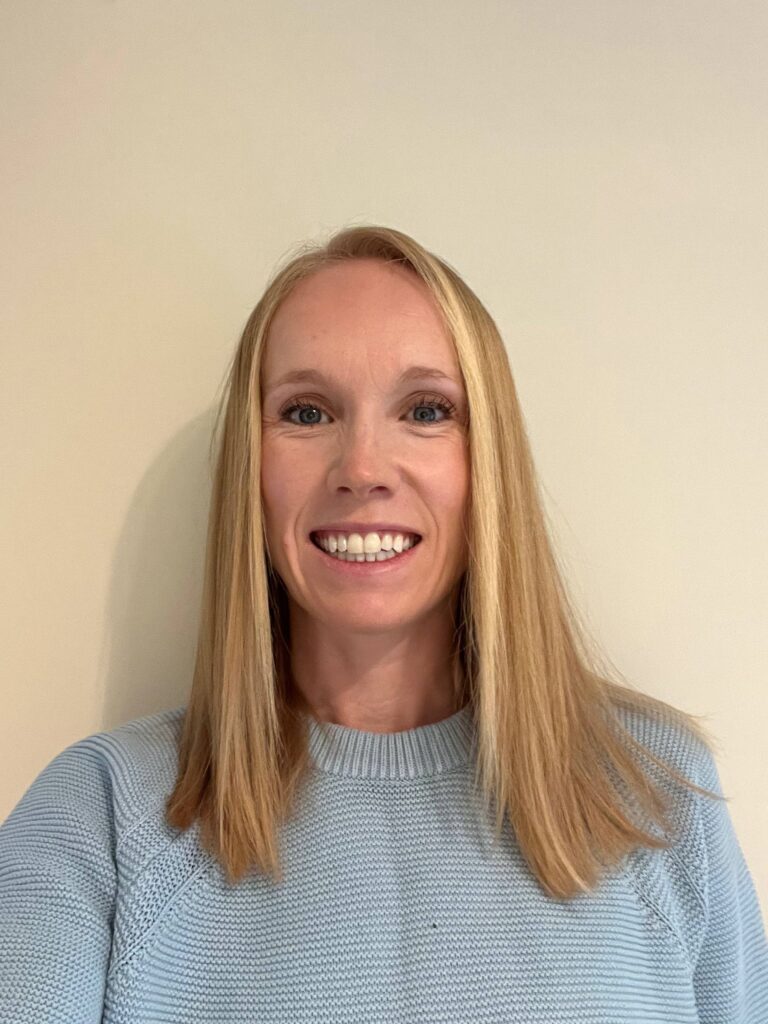
Lucy Winter, Lead specialist dietitian
I have recently returned to working within the intestinal failure and home parenteral nutrition team. The team are fantastic and ensure that the patient is always at the centre of care. I enjoy working as part of the team to help patients meet their nutritional goals.
Outside of work, I enjoy anything outdoors such as running, cycling and paddle boarding.
Clinical psychologist
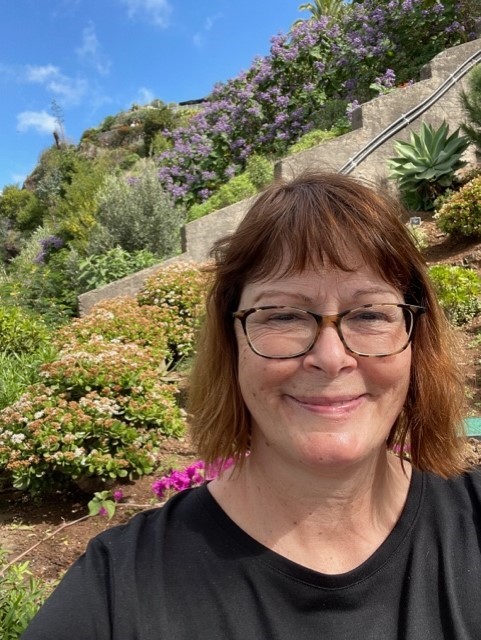
Sue Brown, Clinical psychologist
As a clinical psychologist my job is to help people live their best life with a chronic health condition. I have worked for a lot of years in child health and recognise the challenges patients face when making the move to adult services.
Living with chronic physical conditions can have a huge impact on mental health and wellbeing so it’s really important to actively think and talk about this. Having some sessions with a clinical psychologist gives confidential space to think and talk. This confidential space can also to help young people make plans for how they can live their best life alongside their IF and treatment.
Pharmacist
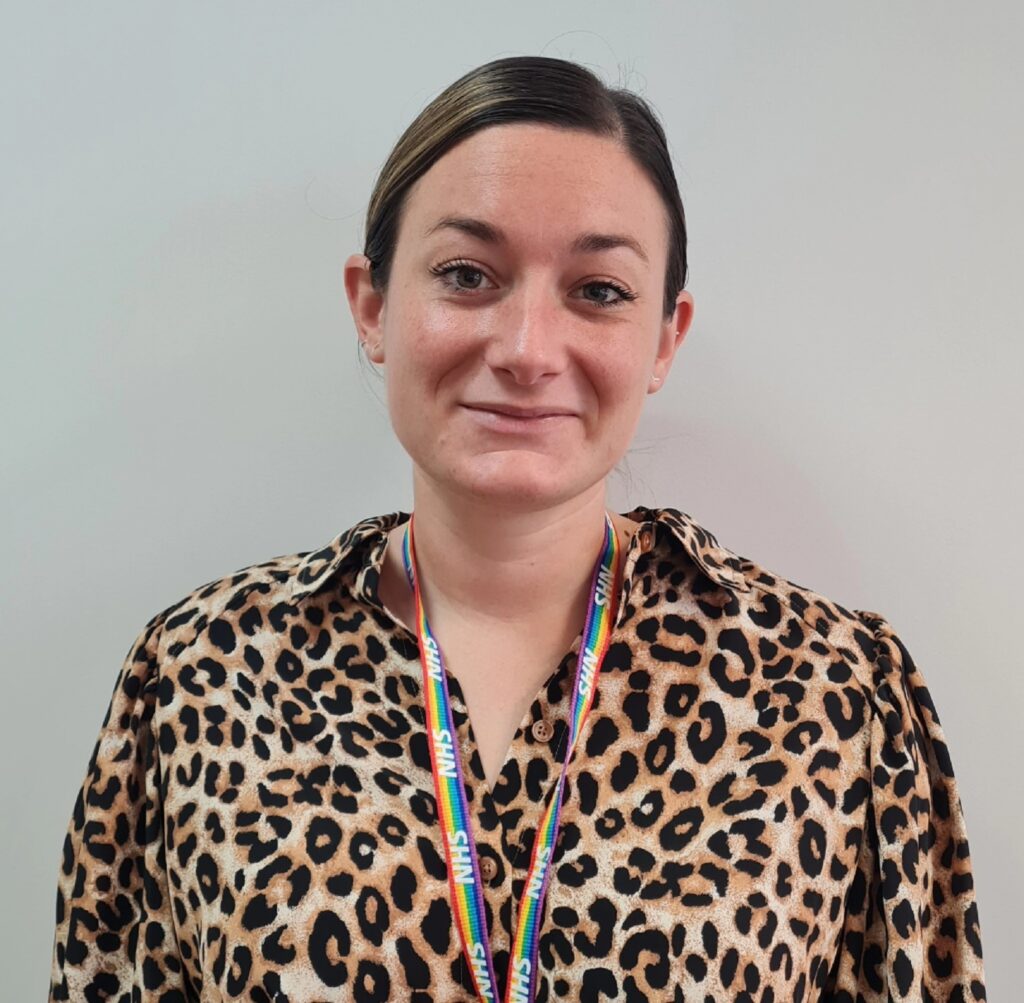
Katie Bell, Lead pharmacist
I have recently joined the team and am looking forward to working alongside my fantastic colleagues.
As a Pharmacist my role is to ensure we use the most effective and evidence-based medicines within the IF service as well as tailoring them to each individual. I also work closely with the dietitians to provide home parental nutrition.
When I’m not at work you’ll find me out in the countryside with my dogs, falling off a surfboard, or cooking for family and friends.
A patient’s perspective

Matt’s story
“Hi, I’m Matt. I’m 21 and have been on varying amounts of HPN since being around 14 years old. This is down to short bowel syndrome, because of multiple surgeries due to Hirchsprungs disease.
Moving across to adult care is definitely not something to fear and should be seen as a positive step in your life. The main difference is that all decisions about your treatment will require your input.
You’ll have your say and the team, rather than them making your choices for you, will work with you to give you the best quality of life.
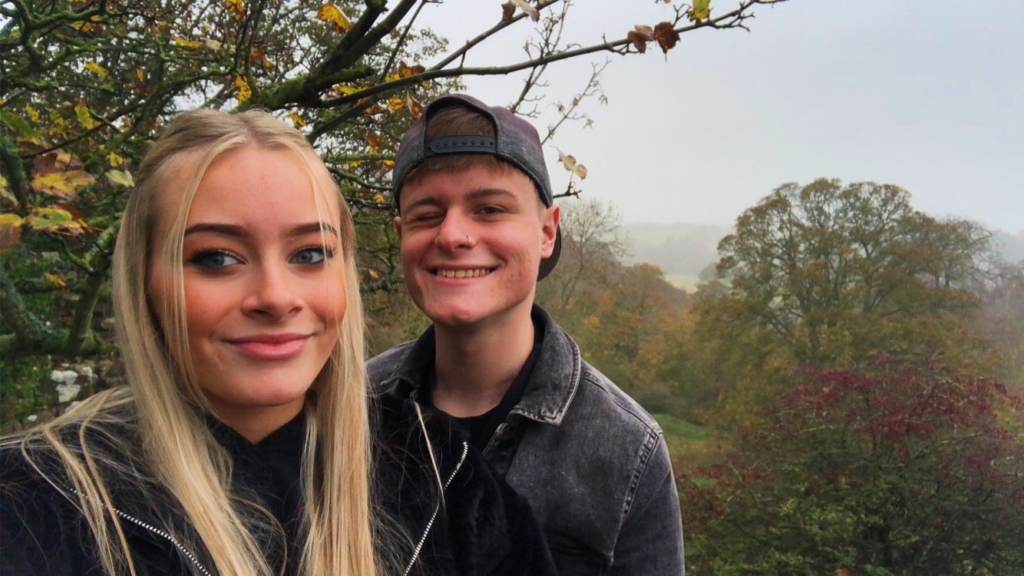
I feel the change has allowed me to grow as a person and a man, and that the opportunity should absolutely be grabbed with both hands. I have always been fantastically well supported and I couldn’t speak highly enough of the advice and care I have received.
You will always be supported no matter what, regardless of whether it is under the adult or paediatric team.”

I’ve been lucky enough to live my life relatively unaffected by HPN and my conditions. I have always been able to do pretty much everything I’ve wanted to do and I am currently working full time in the NHS and saving up to move out on my own into the big wide world!
My story along with many, many others, goes to show that there is quite often more than you’d expect under the surface. However, I’m in control of my treatment with the expert advice of the team, I’ve got a job I love and I’m very happy with where I am in life. It is my firm belief that anything is possible if you put your mind to it and that although change and responsibility is scary, it brings the best out in us.”
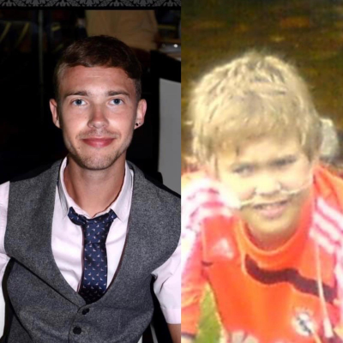
Ryan’s Story
“I was a little scared moving from the children’s service to adults. I had been in the children’s team all my life. In the children’s service, I had a care plan so they knew my mam would be staying with me. I am deaf and have additional needs. I stayed in the children’s service until I was 19.
For the last year, Hayley (Adult HPN Specialist Nurse) came to my appointments, so I felt relaxed because I had met her already. I also went to a Christmas and Halloween party and met others in the team.
When I first came to the adult service my nurse Sarah came with me to my appointment. I knew her well and she even did my HPN when I went on trip away with school and when my mam went away for her 40th birthday (she’s old!).
Dr Mountford had me early on the list, so I was not waiting a long time. I was nervous because of all the people. The children’s clinic is quieter, and they play pool or ‘fuzzball’. But I got used to it and everything was fine.”
“It took me a while to get used to seeing different people. Sarah used to do my weight and bloods herself. Now phlebotomy and the clinic nurse do my weight. I always see Elaine in phlebotomy, she’s nice and knows to use a smaller butterfly needle for me.
I think it’s still good service and I am happy. One thing that could be better is if everyone knows my care plan, so they know about me when arriving e.g. on the ward for iron infusions they expect that I’m with my mam or brother. I can’t travel independently, so I rely on others for this and for communication. I think the move was good because Hayley came to the appointment so I know her face already and now I can easy contact everyone via email. Sarah came with me for few appointments and then I was happy and more relaxed. When I met all the new nurses, they were all friendly and made me feel comfortable.”
About Me
Named team member:
My line:
Date line inserted:
My feeding pump:
My homecare company:
My feeding regime:
| Monday | Tuesday | Wednesday | Thursday | Friday | Saturday | Sunday | |
| Lipid (fat bag) | |||||||
| Non-lipid (non-fat) | |||||||
| Fluids |
Enteral
My enteral nurse:
My tube:
Date tube inserted:
My feeding pump:
My feeding regime:
| Monday | Tuesday | Wednesday | Thursday | Friday | Saturday | Sunday | |
| Feed | |||||||
| Fluids |
My transition checklist
| Yes | No, Not yet | Comments/questions | |
| I have had a discussion with my current team about how and when I will transition | |||
| I know who my named team member is from the adult team and how to contact them | |||
| I have met my named team worker | |||
| I have had a joint clinic with the adult team and my current team | |||
| I have had a clinic with the adult team | |||
| I understand my condition and can explain it to others | |||
| I know what medications I take and why I take them | |||
| I understand why I need HPN | |||
| I know the name of my HPN home care company | |||
| I know how to contact my home care company | |||
| I know what my feeding regime is | |||
| I know what central line I have and how to look after it | |||
| I know what feeding pump I use and how it works | |||
| I am ready to start watching my line care and think about learning how to do my PN | |||
| I am comfortable to ask questions in my clinic appointment | |||
| I would like to attend my clinic appointment on my own |
Glossary of terms
| Common terms | Meaning |
| Compounded PN | Parenteral nutrition tailored to an individual patient |
| Electrolytes | Minerals that can carry an electric charge e.g. sodium, potassium, calcium, magnesium |
| PN/TPN/HPN | Parenteral nutrition/ total parenteral nutrition/ home parenteral nutrition |
| Hartmans solution | Salt solution with a small amount of potassium to be given intravenously |
| Hickman line | A central venous catheter tunnelled in through the chest to allow administration of IV drugs/nutrition |
| IF | Intestinal failure |
| IV | Intravenous (given via a vein) |
| LFTs | Liver function tests. These are routinely monitored via blood tests. |
| MCB or ‘off the shelf bag’ | Multi-chamber (PN) bag, a ‘ready-made’ parenteral nutrition bag |
| MDT meeting | Multi-disciplinary team meeting (can include doctors, nurses, dietitians and pharmacists) |
| Midline catheter | A midline catheter is inserted in the upper arm. They usually stay in for 14 days, but can last up to 30 days in certain circumstances |
| Parenteral | “to eat via a vein” (literal translation) |
| PICC line | Peripherally inserted central catheter. A longer term ‘line’ that is inserted in the arm and can be used for to administer PN or IVT Peripherally inserted central catheter |
| Port-A-Cath (port) | A small chamber or reservoir that sits under the skin at the end of a central line, often used to administer PN or IV drugs |
| Refeeding syndrome | A condition which can occur when feeding is restarted after a period of limited, or no oral intake (usually over 5 days)Bottom of Form |
| Saline (0.9% NaCl) | Salt solution to be given intravenously |
| Short bowel syndrome | Results when a portion of the small intestine is removed. Characteristic symptoms include impaired digestion and absorption |
| Taurolock | An antimicrobial line lock which is used to reduce the risk of line infections |
Frequently asked questions
What are the main differences I might expect when transitioning from paediatric to adult care?
At the adult outpatient clinic, we usually alternate each visit between an appointment with the consultant gastroenterologist and one with a specialist nurse and dietitian. However, both are available at each visit if you have any specific questions or concerns.
As you progress through transition, we want to empower you to make your own decisions about your care with our support. We will still involve your family or carer as much as you wish.
If I come into hospital, will I go to an adult ward?
Yes, if you need to be admitted to hospital, it will be to an adult ward. The ward environment will be different to what you are used to, but we work closely with the nursing staff and ward sisters. Before you transition, you can come and visit the adult ward and meet the team. Where able, your parent/guardian/friend can stay with you.
Is my parent/guardian/friend allowed to come to clinic with me?
Yes, you are more than welcome bring along one person to support you during your clinic appointments. We encourage you to be independent, but we also want you to feel comfortable and confident.
What temperature is a high temperature?
Above 37.8oC is classed a high temperature. Other signs of a raised temperature can include shivering, shaking, and alternating between feeling hot and cold. If you have any of these symptoms whilst on your HPN please contact us or your local A&E department as it may be a sign of a line infection.
Can I get my dressing wet?
Yes. This depends on the type of dressing but usually you can go swimming and have a shower without an issue. Please be mindful that you should avoid fully submerging your line when swimming or bathing. Please ask one of our nurses for further advice on covering your line when swimming.
Can I play sports?
If you feel well and have enough energy, many sports can be suitable for you. It is important to avoid any contact to your line – you can tape it up to ensure it remains in place. Please contact us before taking part in any water sports or very strenuous activities, as we often need to assess whether this is appropriate on an individual basis.
Can I go on holiday?
In most cases – yes! Holidays usually require some logistical arrangements and might involve a short-term change to your HPN, but they are usually possible. Please involve us early if you plan to go on holidays. You can also have a look at the PINNT Holiday Guidelines for further information.
For further information
Please do not hesitate to get in contact with us if you have any further questions. We have included some useful contact details and websites below.
Contact details
Home PN and intestinal failure nurse specialists
Tel: 0191 223 1100
Email: [email protected]
Monday to Friday: 8.30am – 4.30pm
Specialist intestinal failure dietitians
Tel: 0191 223 1231
Email: [email protected]
Monday to Friday: 8.30am – 4.30pm
The Patient Advice and Liaison Service (PALS) can offer on-the-spot advice and information about the NHS. You can contact them on freephone 0800 032 02 02 or e-mail [email protected]
Useful websites
If you would like further information about health conditions and treatment options, you may wish to have a look at the NHS Choices website at www.nhs.uk.
Patients on Intravenous & Nasogastric Nutrition Therapy (PINNT) support group